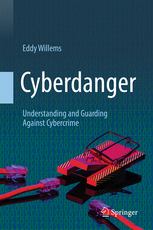Make updates! Restart your computer!
Pornography alarm or reboot?
But there is another pitfall: Most computer users do not realize that many software updates do not only need to be installed, but the computer needs to be restarted for the updates and patches to take effect. The combination of ignorance, impatience and laziness is fatal in this sense.
The safety of the PC stands and falls with the combination of your security software, the updates of the OS and other software and especially of your own behavior. Very often, the Achilles heel of PC security is human ‘procrastination’.
Users often don’t want to turn the PC or laptop off completely, because the startup takes too long. The endlessly used method to simply closing the laptop or choosing hibernation state of the PC is a phenomenon that most readers will be familiar with. The use of tablet computers even made it worse: those devices are ready to be used in an instant and therefore have made us even more impatient.
And so it is that there are more and more problems with so-called 0-Day and half-day leaks. A lot of the provided updates that close those security vulnerabilities require full reboot of the device in order to be installed properly.
There are updates that force you to reboot your computer, but, unfortunately, not all vendors follow this concept. Microsoft sets a good example here. But even if all software vendors would ask the user to reboot after the update/patch installation, ask yourself: how many times have you postponed a possible update of Oracle Java or Adobe Flash due to lack of time or the like?
Unfortunately, cyber criminals are all too aware of this problem, as becomes apparent when going through some message boards of underground forums. An example of malware that is explicitly searching for unfixed security vulnerabilities is the famous eCops ransomware. Users of infected computers will notice an infection, because the Trojan locks the PC, takes it hostage, so to say, and asks the user to transfer €100 or more for the release of the system. The malware accuses the owner: It locks the PC under the pretext that illegal pornography was found on the PC. This is a very awkward situation which can even lead to marital problems, when seen by the eyes of our spouses.
This example clearly shows that delaying the updating and restarting process of your PC for a week or longer is like begging for trouble.
On the other hand, it is understandable why people are in the habit of procrastinating updates. We receive so many of them on a daily base that it is quite logical to get slightly annoyed by them. However, this does not mean ignoring update notifications is a good idea, whether you pride yourself on being tech savvy or not.
When you think about it, is it really that much of an inconvenience to reboot your PC directly after an update/patch installation and thus to finish the update/patch process properly, if it means that you can spare yourself a very embarrassing situation with your other half?
I for one will gladly wait a few minutes to complete a reboot a few times a week rather than having to explain to my wife that “no, I did not download any illegal porn to our computer”, and “no, I’m really not making any excuses for myself”.
My tip is clear: if there are updates or patches, download ASAP, do not procrastinate and reboot your device – in cases of doubt and especially if the update/patch indicates it!
This article was originally posted at the G Data Security Blog.













